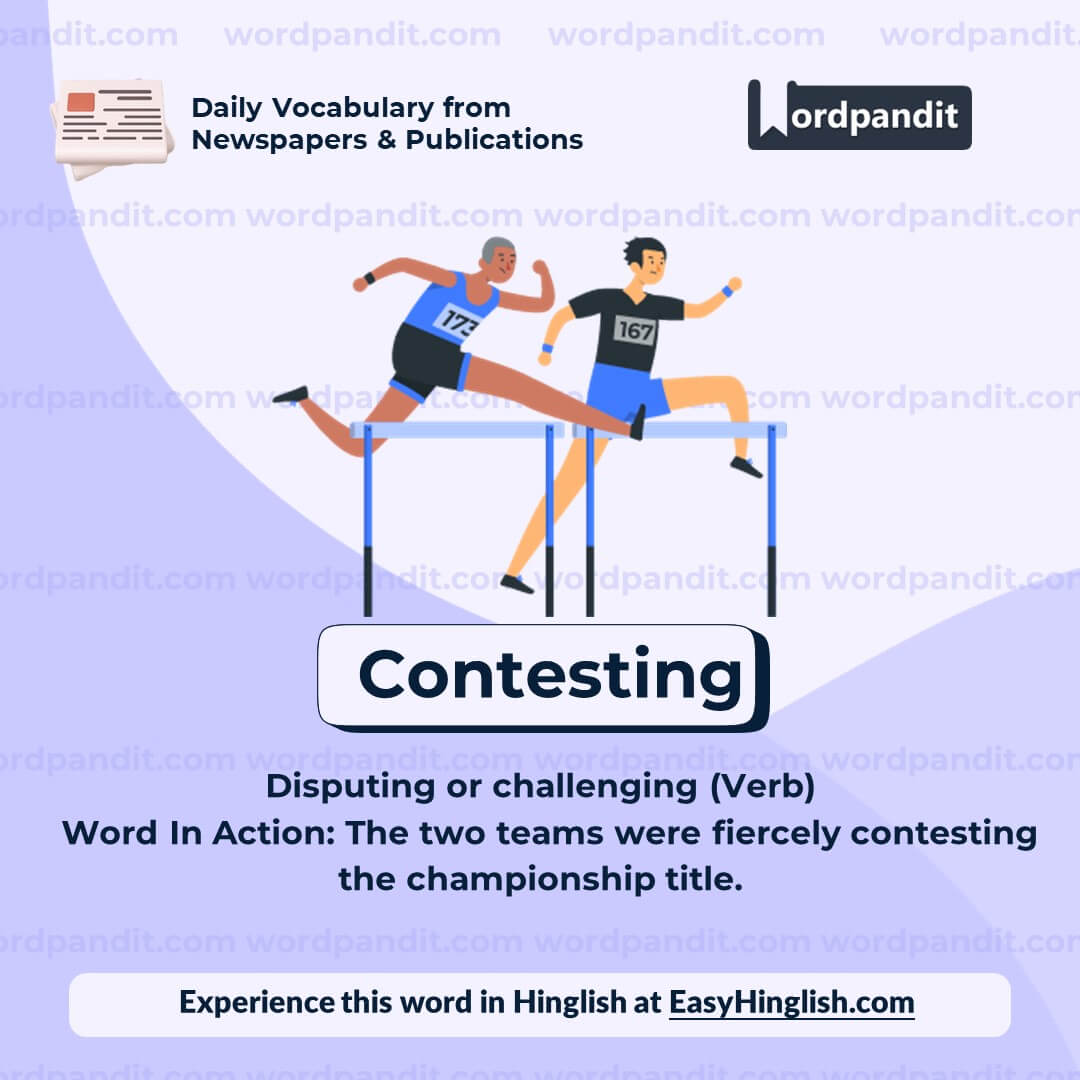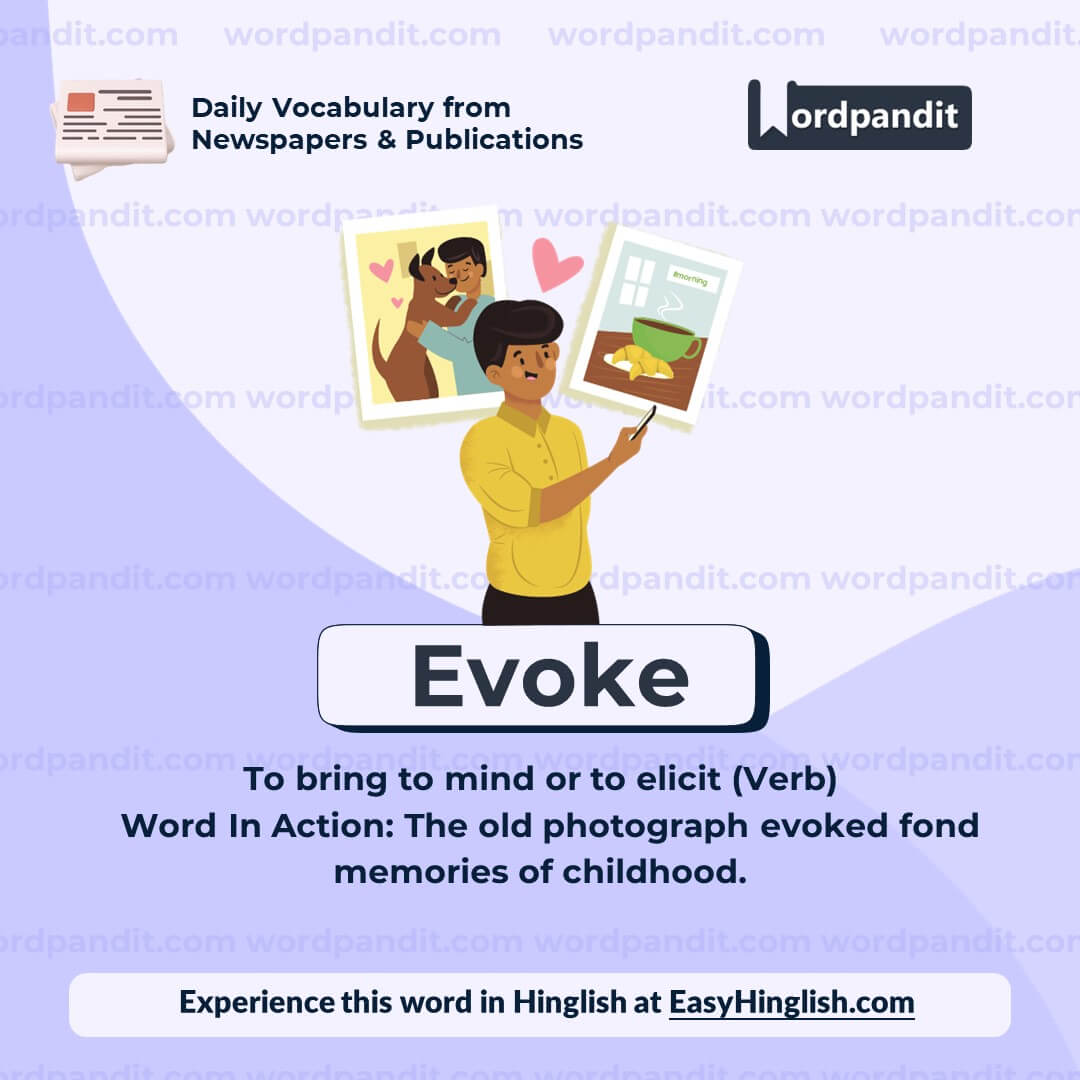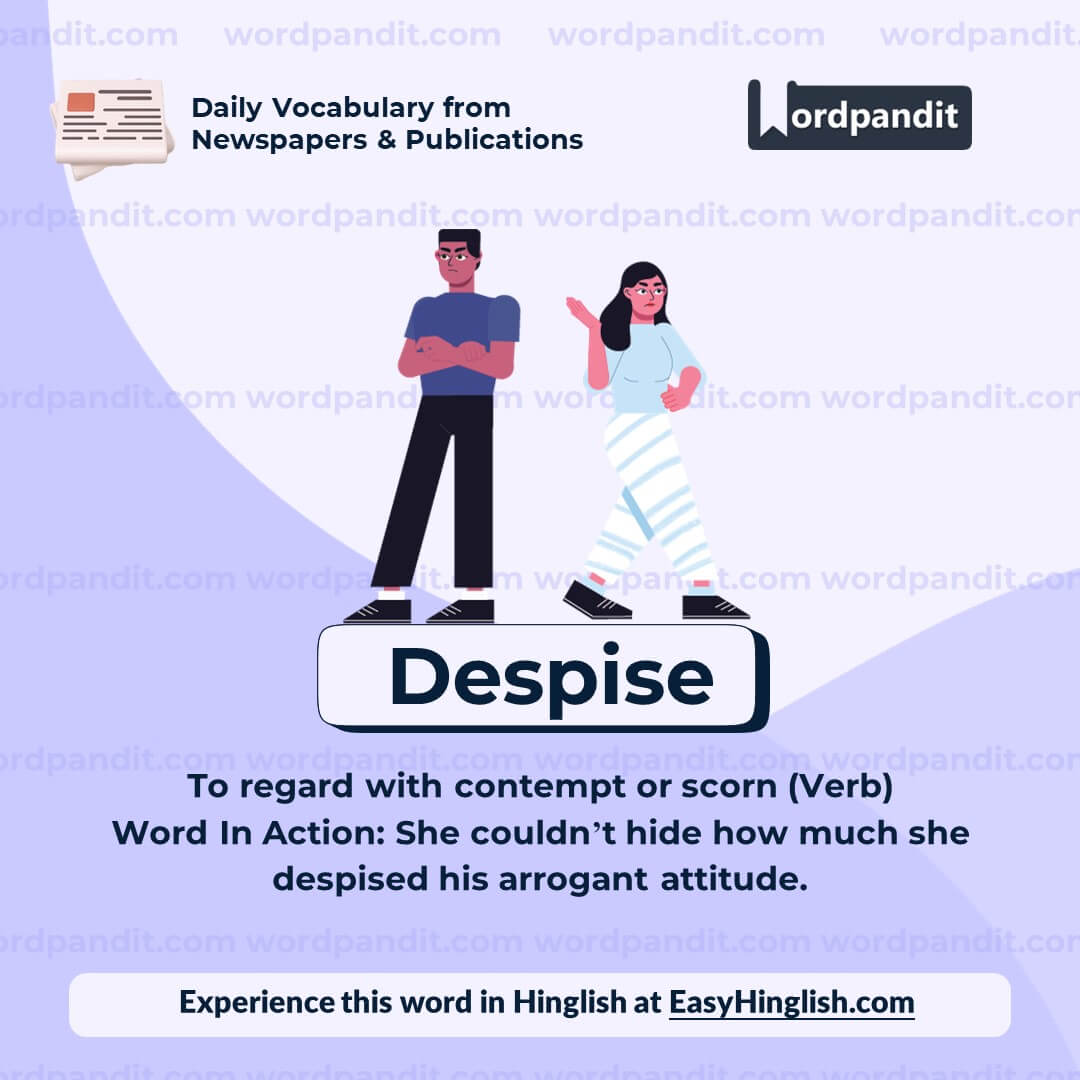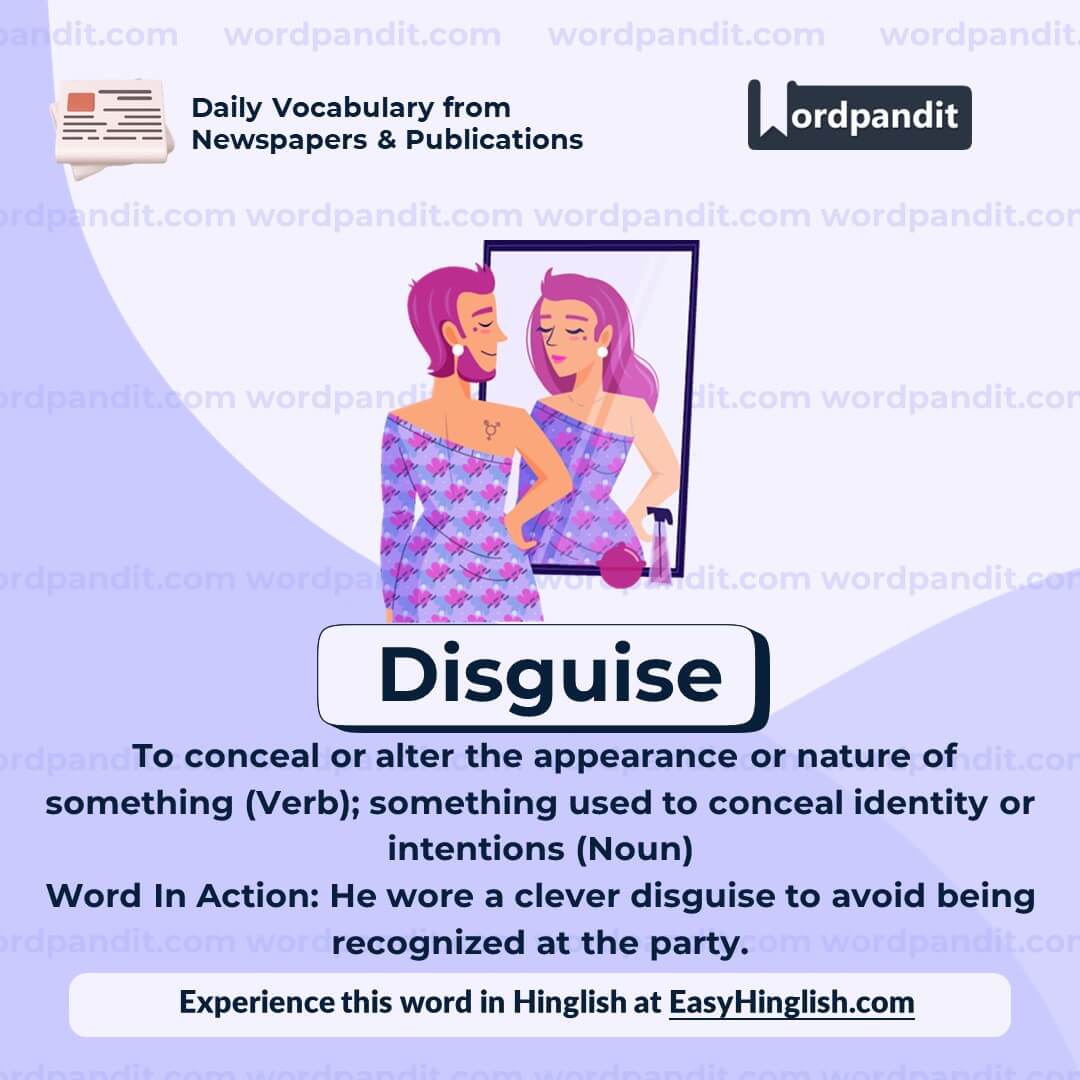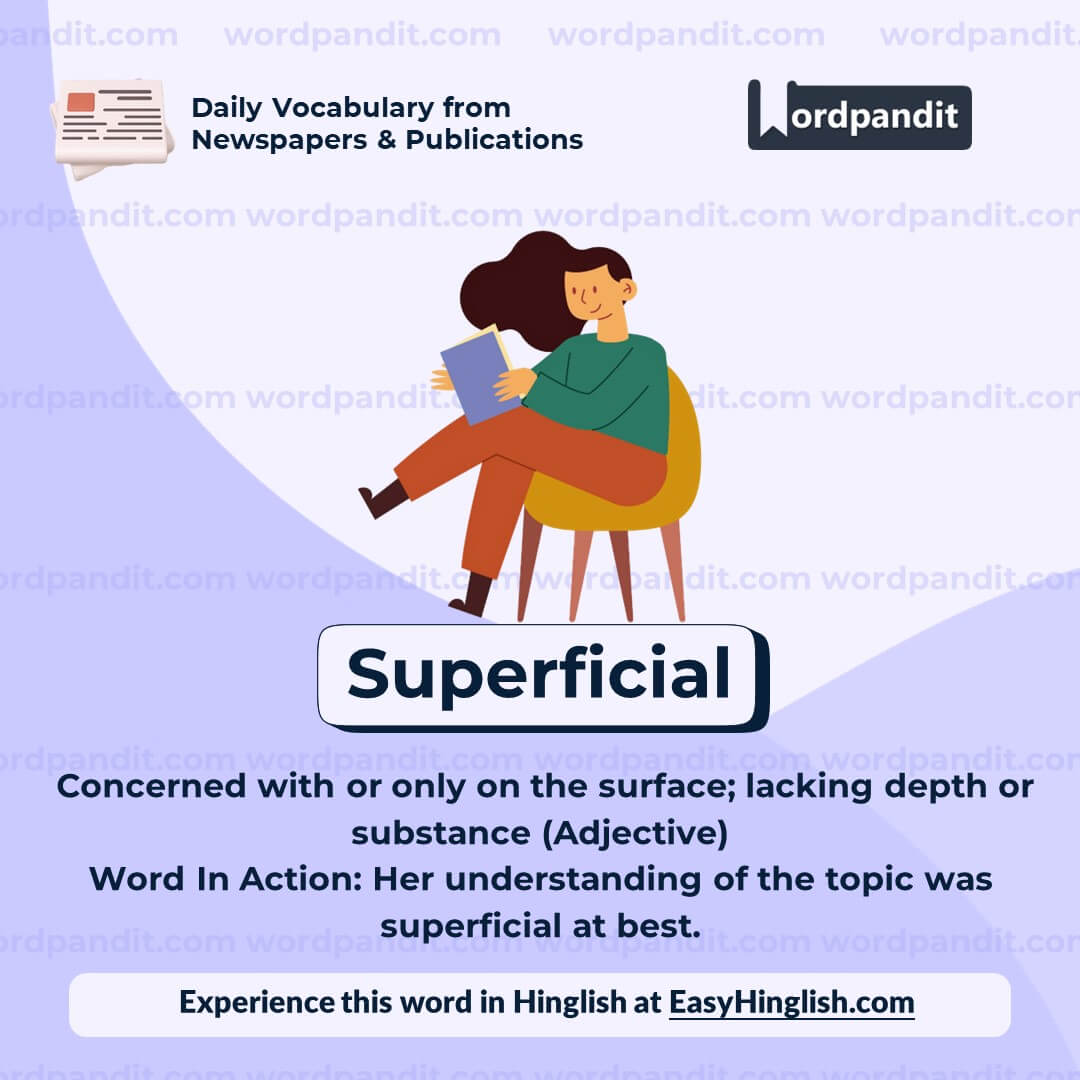Daily Vocabulary from International Newspapers and Publications
Expand Your Vocabulary with Wordpandit’s Global Vocabulary Hub
At Wordpandit, we are committed to helping you develop a truly global vocabulary by drawing from some of the most respected international publications. This section is designed to keep you ahead of the curve by introducing you to words that define global conversations and trends.
The Power of Global Sources
To help you think and communicate on a global scale, we curate vocabulary from renowned international sources, such as:
- The New York Times
- The Washington Post
- BBC
- The Guardian
- The Economist
- Scientific American
- Psychology Today
- And many more...
Stay Global, Stay Competitive
Our daily updates from international publications ensure you are consistently exposed to new words that reflect global news and developments, making sure your vocabulary is not only current but also globally relevant.
Enhance Your Global Perspective
Whether you’re preparing for international exams, aiming to excel in global business communication, or want to enhance your language skills for personal growth, Wordpandit offers the resources you need to thrive in a global context.
Effective Learning, Global Reach
Our learning methodology combines global examples, memory aids, and interactive activities, allowing you to internalize new words effectively and apply them in real-world scenarios.
Begin Your Global Vocabulary Journey Now!
Why Choose Wordpandit?
Practical Learning: Focus on words you'll actually encounter in real-world reading, enhancing your comprehension and communication skills.
Diverse Content: From current affairs to scientific breakthroughs, our varied sources expose you to vocabulary across multiple domains.
Effortless Integration: Make Wordpandit a part of your daily routine. Just a few minutes each day can significantly boost your lexicon over time.
Your Path to Vocabulary Mastery
- Visit our Daily Vocabulary section regularly
- Explore new words and their usage in context
- Practice incorporating these words into your own writing and speech
- Track your progress as your vocabulary expands
Start Your Journey Today
Embark on your vocabulary enhancement journey with Wordpandit. By consistently engaging with our daily posts, you'll build a robust vocabulary that serves you well in academic, professional, and personal contexts.
Remember, a word a day keeps linguistic limitations at bay. Make Wordpandit your daily companion in the quest for vocabulary excellence!
WORD-1: Contesting
Context:
"In his work on republicanism as a living idea, J G A Pocock showed that contesting history is part of a robust civic life." - Aeon
Explanatory Paragraph:
The word "contesting" refers to the act of challenging or disputing something, such as ideas, opinions, or interpretations. It often implies an active engagement in debate or a struggle to assert one's perspective or claim. In the context of civic life, contesting history can involve debating interpretations of past events to shape collective understanding and inform societal progress.
Meaning: Disputing or challenging (Verb)
Pronunciation: kuhn-TES-ting
Difficulty Level: ⭐⭐⭐ Intermediate
Etymology: Derived from the Latin word contestari, meaning "to call to witness" or "to dispute."
Synonyms & Antonyms:
Synonyms: Disputing, challenging, debating, arguing
Antonyms: Accepting, agreeing, conceding, acquiescing
Usage Examples:
- The students were contesting the results of the examination, claiming discrepancies in grading.
- The politician is contesting the election results, alleging electoral fraud.
- Historians are contesting the long-held assumptions about the causes of the war.
- He is contesting his dismissal from the company as unjust and unfair.
Cultural Reference:
"Contesting historical narratives has been a cornerstone of democratic societies, as it allows for multiple perspectives to coexist and enrich collective memory." - Inspired by the principles of public debate in democratic systems.
Think About It:
Why is it important for societies to allow contesting views of history, and how can this process strengthen democracy?
Quick Activity:
Write a short paragraph on a historical event you believe is often contested and explain why differing interpretations exist.
Memory Tip:
Think of "contesting" as a contest — just like in sports, where teams challenge each other to win.
Real-World Application:
The concept of contesting is vital in legal disputes, academic debates, and public discourse, as it fosters critical thinking and helps uncover truths.
WORD-2: Evoke
Context:
"Evokes bias, political manoeuvring and a lack of critical thinking. This description conjures up historians merely as political pundits, rummaging through history in search of evidence to support their own political goals." - Aeon
Explanatory Paragraph:
The word "evoke" means to bring something to mind or to cause a feeling, memory, or image to arise in someone's mind. It suggests a process of eliciting an emotional or intellectual response, often through the use of language, imagery, or association. For example, certain words or events might evoke memories of the past or feelings of nostalgia.
Meaning: To bring to mind or to elicit (Verb)
Pronunciation: ee-VOHK
Difficulty Level: ⭐⭐ Beginner
Etymology: From the Latin word evocare, meaning "to call out" or "to summon."
Synonyms & Antonyms:
Synonyms: Conjure, elicit, inspire, provoke
Antonyms: Suppress, ignore, quell, repress
Usage Examples:
- The painting evoked a sense of nostalgia for simpler times.
- The politician's speech evoked a strong reaction from the crowd, both positive and negative.
- The scent of lavender always evokes memories of my grandmother's garden.
- The author uses vivid descriptions to evoke the feeling of being in a bustling marketplace.
Cultural Reference:
"Art has the power to evoke profound emotions, often connecting us to universal experiences." - Reflected in the works of artists like Monet, who used imagery to evoke the serenity of nature.
Think About It:
What are some specific smells, sounds, or sights that evoke strong memories or emotions for you? Why do you think these triggers are so powerful?
Quick Activity:
Write a sentence describing a moment or object that evokes a specific emotion or memory for you.
Memory Tip:
Remember "evoke" by thinking of "evoking emotions" — both start with "e" and are about bringing something out.
Real-World Application:
In marketing, advertisements often evoke feelings of happiness, nostalgia, or desire to connect with the audience and drive engagement or sales.
WORD-3: Despise
Context:
"Crafting and re-crafting shared meanings and political identities. They narrate what was and is to be admired or despised, imitated or avoided." - Aeon
Explanatory Paragraph:
The word "despise" means to feel strong dislike or contempt for someone or something considered worthless, inferior, or deserving of scorn. It goes beyond simple dislike and often carries an emotional intensity, implying disdain or moral judgment.
Meaning: To regard with contempt or scorn (Verb)
Pronunciation: dih-SPYZ
Difficulty Level: ⭐⭐⭐ Intermediate
Etymology: From the Latin word despicere, meaning "to look down on."
Synonyms & Antonyms:
Synonyms: Scorn, disdain, detest, loathe
Antonyms: Admire, respect, cherish, adore
Usage Examples:
- She despises dishonesty and always values integrity in others.
- The dictator was despised by his people for his oppressive policies.
- Many environmentalists despise companies that recklessly pollute the planet.
- He despises laziness and believes in working hard to achieve success.
Cultural Reference:
"Despise" often appears in literature and speeches to highlight moral struggles. For example, in Shakespeare's plays, characters frequently express disdain for treachery or dishonor.
Think About It:
Why do we sometimes despise certain behaviors or attitudes in others, and how can we channel that feeling into positive change?
Quick Activity:
Write a list of three qualities or actions you despise and consider why they elicit such strong feelings in you.
Memory Tip:
Think of "despise" as "des" + "spy" — looking down on someone like a spy who disapproves from afar.
Real-World Application:
Understanding what people despise is crucial in fields like politics, marketing, and social change, as it helps shape messages that resonate or avoid alienating audiences.
WORD-4: Disguise
Context:
"Historians are not potential partisans in disguise who use and abuse historical records for political purposes." - Aeon
Explanatory Paragraph:
The word "disguise" refers to the act of concealing one's true identity, appearance, or intentions, often by altering outward characteristics or creating a misleading impression. It can be used literally, such as wearing a costume, or metaphorically, to hide one's true motives or feelings.
Meaning: To conceal or alter the appearance or nature of something (Verb); something used to conceal identity or intentions (Noun)
Pronunciation: dis-GYZ
Difficulty Level: ⭐⭐ Beginner
Etymology: From the Old French word desguiser, meaning "to change one's appearance."
Synonyms & Antonyms:
Synonyms: Mask, conceal, camouflage, cloak
Antonyms: Reveal, expose, unmask, uncover
Usage Examples:
- She wore a wig and glasses to disguise herself in the crowd.
- The spy used a false identity to disguise his true purpose.
- His calm demeanor was a disguise for the anxiety he felt inside.
- The organization disguised its true intentions behind a facade of charity work.
Cultural Reference:
Disguises are a common theme in literature and film, from Shakespeare’s comedies like Twelfth Night, where characters disguise themselves to comedic effect, to superhero stories where secret identities play a key role.
Think About It:
What are some situations where disguising one's true intentions might be justified, and where might it be harmful?
Quick Activity:
Think of a time you hid your true feelings or intentions. Write a short paragraph about how and why you disguised them.
Memory Tip:
Remember "disguise" by thinking of a "disguise kit," often used in stories to hide someone's identity.
Real-World Application:
Disguise is often used in security and intelligence work, acting, and storytelling to protect identity or create dramatic effects.
WORD-5: Superficial
Context:
"That ‘rapid-fire’ superficial histories might serve political aims at the price of historical accuracy." - Aeon
Explanatory Paragraph:
The word "superficial" refers to something that exists or occurs on the surface and lacks depth, thoroughness, or significance. It is often used to describe shallow observations, relationships, or analyses that fail to capture the underlying complexities or true essence of a subject.
Meaning: Concerned with or only on the surface; lacking depth or substance (Adjective)
Pronunciation: soo-per-FISH-uhl
Difficulty Level: ⭐⭐ Beginner
Etymology: From the Latin word superficialis, meaning "of or pertaining to the surface."
Synonyms & Antonyms:
Synonyms: Shallow, cursory, surface, trivial
Antonyms: Deep, profound, thorough, substantial
Usage Examples:
- The journalist's report provided only a superficial overview of the complex issue.
- Her superficial charm made a strong first impression, but it lacked genuine warmth.
- He criticized the book for offering a superficial analysis of the economic crisis.
- The damage to the car was mostly superficial and did not affect its performance.
Cultural Reference:
In popular culture, the term "superficial" is often used to critique materialistic or shallow behaviors, as portrayed in movies like Clueless, where characters are initially judged by their surface-level traits.
Think About It:
Why do you think people or societies sometimes favor superficial analyses over deeper explorations of truth?
Quick Activity:
Write a sentence describing a situation where being superficial might lead to misunderstandings or missed opportunities.
Memory Tip:
Associate "superficial" with "surface" — both start with "super" and imply a focus on what's on top rather than beneath.
Real-World Application:
The term "superficial" is widely used in fields like journalism, education, and politics to critique efforts that prioritize speed or convenience over thoroughness and accuracy.


